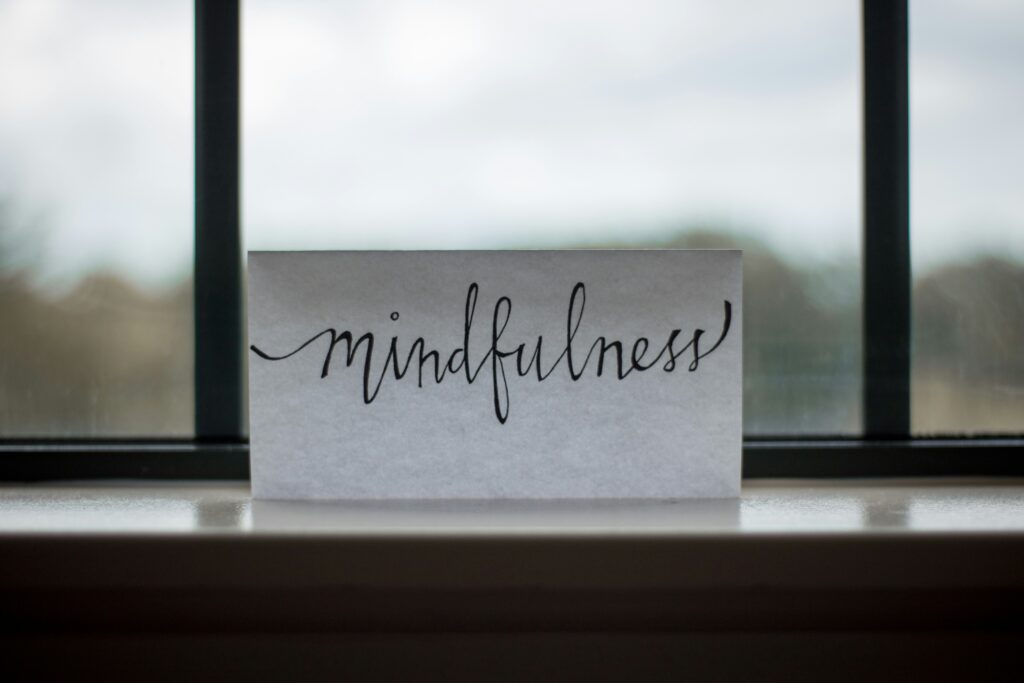In today’s fast-paced world, teenagers face a myriad of pressures, from academic expectations and social dynamics to the challenges posed by social media and future uncertainties. According to TrueBodyProject these stresses can often seem overwhelming, making it crucial for young adults to find effective ways to manage their anxiety and maintain mental wellness. Mindfulness exercises have emerged as a powerful tool in this regard, offering a path to calmness and emotional balance.
Understanding the Teenage Brain
The teenage brain is a dynamic and rapidly evolving organ, still in the process of development. This period of growth makes teens particularly vulnerable to stress, as their brains adapt to managing emotions and impulses. Mindfulness exercises help by creating habits of awareness and self-regulation, skills that are particularly beneficial during these formative years.
Breath Focus Technique
One of the simplest yet most effective mindfulness exercises is the Breath Focus Technique. This exercise involves sitting in a quiet place and concentrating on the natural inhalation and exhalation of breath. Teens can practice this by taking five minutes in the morning or before a stressful event, like an exam, to close their eyes and focus solely on their breathing. This method aids in centering the mind, reducing immediate stress, and improving concentration.
Journaling
While not often highlighted as a typical mindfulness exercise, journaling can be a profound way to cultivate mindfulness. It offers teens a way to express their thoughts and feelings constructively. Websites like research papers for sale essayhub.com provide resources on how to effectively communicate in writing, offering services like cheap research paper that can also help teens manage academic stress by improving their writing and research skills.
Progressive Muscle Relaxation

Progressive Muscle Relaxation (PMR) is another effective tool that helps manage the physical symptoms of stress often experienced by teenagers. This technique involves tensing each muscle group in the body intensely, but gently, and then relaxing them in succession. This practice not only helps in recognizing the sensations of tension and relaxation but also aids in easing the ‘fight or flight’ response often triggered by stress.
Guided Imagery
Guided Imagery is a powerful exercise that involves using the imagination to induce calmness and relaxation. Teens can practice this by visualizing a peaceful scene, such as a quiet beach or a serene forest. This method is particularly effective before bedtime to ensure a restful sleep, which is crucial for emotional and physical health.
Mindful Walking
Unlike traditional exercises that require sitting still, Mindful Walking integrates mindfulness with physical activity and can be especially appealing to teens. This exercise involves walking slowly and deliberately, noticing each step and breath, and observing the sensations in the body and the environment around. It’s a practical exercise that can be incorporated into daily routines, such as walking to school or during breaks.
Yoga and Meditation
Combining physical poses with deep breathing, yoga is an excellent practice for stress relief that also promotes mindfulness. Many yoga practices include meditation elements that enhance mindfulness and relaxation. Local community centers often offer classes tailored to teens, making it accessible and encouraging regular practice.
Mindfulness Apps
In the digital age, the use of technology has seamlessly integrated into daily life, including in the practice of mindfulness. Numerous apps have been specifically designed to cater to teenagers, making the journey into mindfulness both engaging and accessible. These digital tools are particularly useful because they can be used anytime and anywhere, fitting conveniently into the busy schedules of young adults.
Guided Meditations
Many mindfulness apps offer a range of guided meditations, which are particularly helpful for beginners. These guided sessions can vary in length, from quick five-minute sessions to longer periods of deep meditation. They are crafted to guide users through the meditation process, helping them focus their minds and eliminate distractions. This feature is especially beneficial for teens who might find it challenging to practice mindfulness on their own.
Breathing Exercises
Another core component of these apps is the inclusion of breathing exercises. These are designed to help users manage anxiety and stress by focusing on and regulating their breathing patterns. Breathing exercises can be particularly beneficial before stressful events such as exams or presentations, providing a quick way for teens to regain their calm and focus.
Tailoring to Young Users
Developers of mindfulness apps have taken great care to ensure that their content resonates with a younger audience. This includes using language that is relatable and designing interfaces that are attractive and easy to navigate. Many apps also incorporate gamification elements, such as earning badges or unlocking new levels, to motivate teens to practice regularly.
Integration into Daily Routines
The flexibility of mindfulness apps means they can be easily integrated into daily routines. Whether it’s during a morning commute, after school, or before bed, these apps can provide structured mindfulness practices that fit into the various segments of a teenager’s day. This flexibility helps in cultivating a regular practice, which is key to experiencing the benefits of mindfulness.
| Headspace: Offers guided meditations, sleep sounds, and mindfulness practices tailored to specific needs such as anxiety, focus, and stress. Headspace Calm: Known for its soothing sounds, sleep stories, and guided meditations, Calm focuses on reducing anxiety and improving sleep. Calm Insight Timer: Features a large library of free meditations and music tracks from mindfulness experts around the world. Insight Timer 10% Happier: A meditation app designed for skeptics, offering practical mindfulness techniques and guided meditations from a variety of instructors. 10% Happier Breethe: Provides tools for mindfulness, meditation, and mental wellness, including guided meditations, music, and talks. Breethe |
The Role of Support
While mindfulness exercises are powerful tools for stress management, the importance of a supportive environment cannot be overstressed. Encouragement from family, friends, and educators can significantly enhance the effectiveness of these techniques. Schools and communities can play a critical role by incorporating mindfulness exercises into daily activities and curriculum, fostering an environment that supports mental wellness.
Conclusion
Mindfulness exercises offer a viable solution for managing teen stress, promoting not only immediate relief but also long-term emotional resilience. As teenagers navigate the complexities of young adulthood, these practices equip them with the tools to face challenges more calmly and confidently. By incorporating mindfulness into their daily routines, teens can enhance their quality of life and lay a strong foundation for mental health and well-being.

